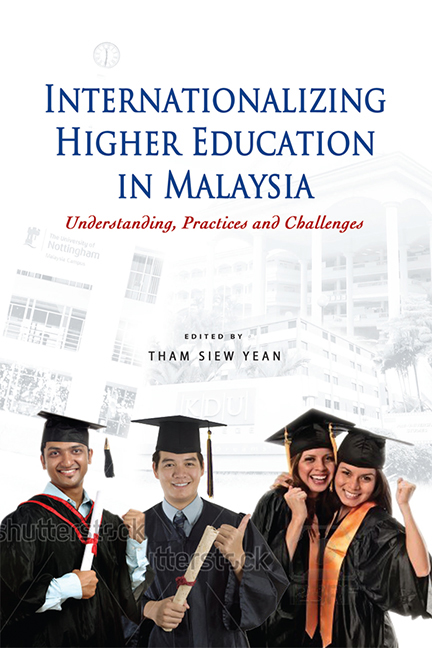Book contents
- Frontmatter
- Contents
- List of Tables
- List of Figures
- Preface
- Contributors
- 1 From the Movement of Itinerant Scholars to a Strategic Process
- 2 Towards Understanding the Internationalization of Higher Education and its Challenges
- 3 Public Universities: Development and Internationalization
- 4 Private Higher Education Institutions: Development and Internationalization
- 5 Macro Perspectives: Ideas, Practices and Challenges
- 6 Micro Perspectives: Ideas, Practices and Challenges
- 7 Concluding Remarks
- Index
2 - Towards Understanding the Internationalization of Higher Education and its Challenges
Published online by Cambridge University Press: 21 October 2015
- Frontmatter
- Contents
- List of Tables
- List of Figures
- Preface
- Contributors
- 1 From the Movement of Itinerant Scholars to a Strategic Process
- 2 Towards Understanding the Internationalization of Higher Education and its Challenges
- 3 Public Universities: Development and Internationalization
- 4 Private Higher Education Institutions: Development and Internationalization
- 5 Macro Perspectives: Ideas, Practices and Challenges
- 6 Micro Perspectives: Ideas, Practices and Challenges
- 7 Concluding Remarks
- Index
Summary
INTRODUCTION
Higher education (HE hereafter) in Malaysia from the 1990s onwards has been restructured to meet the changing demands arising from globalization and its attendant “knowledge economy”. The restructuring of the HE sector came in the form of privatization, corporatization and internationalization. Higher or tertiary education comprises universities, university colleges, polytechnics, community colleges and colleges. During the 1990s, the HE landscape changed visibly with the proliferation of education institutions, both public and private, to cope with the increasing demand for a diploma or degree as a passport to job prospects in an increasingly borderless work environment or for upward social mobility. In the 1970s, there were only three public or government-sponsored universities in the country. By 2011, there are 20 public universities and 452 private universities and colleges (see Chapters 3 and 4).
As for private universities, in the 1980s there was no private university in existence. By 2011, there are forty-four private education institutions with university status (see Chapter 4). The main reason for this proliferation of higher education institutions (HEIs) was due to a policy shift to deregulate HE and encourage more participation by the private sector due to the inability of public universities to cope with the increasing demand (Morshidi 2006). The Private Higher Educational Institutions Act of 1996 allows the establishment of private universities and university colleges and for these institutions to confer their own degrees. In addition, these institutions offer a wide range of programmes from pre-university to postgraduate levels. A distinguishing feature of these private institutions compared to their public counterparts is the nature of their transnational programmes which include twinning with foreign universities, credit transfers, external degrees and distance learning programmes.
The policy on corporatization of public universities inevitably affects the governance structure, the diversification of revenue and the institutionalization of corporate managerial practices (Lee 2004, p. 36).
- Type
- Chapter
- Information
- Internationalizing Higher Education in MalaysiaUnderstanding, Practices and Challenges, pp. 18 - 40Publisher: ISEAS–Yusof Ishak InstitutePrint publication year: 2012



